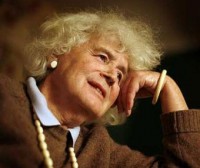In early 2012, I read on the “Real Hatfield, Real McCoy…” Facebook page that a writer named Dean King was soon to publish a book on the Hatfield and McCoy feud. I was interested, of course, as I had been hoping for someone to write a book undoing the damage to the reputations of my ancestors that originated with the yellow journalists of the 1880s and continued through the ersatz “history” written by Otis Rice in 1982, wherein he cited journalists over one hundred fifty times in one hundred twenty-six pages.
In preparation for the advent of the King opus, I went to the library and checked out his “Patrick O’ Brien: A Life Revealed.” I hadn’t read more than a dozen pages before I realized that what I was reading was fiction: No one could possibly know the details that King claimed to know about O’Brian.
I pre-ordered the King feud book, grandiosely titled “The True Story,” on Amazon, and received one of the first copies. I was not at all surprised to see many direct quotations of words King claimed to know were spoken more than a century ago in the woods of the Tug Valley. I was only mildly surprised to read what people thought and smelled in the Tug Valley woods long ago.
I was, however, actually surprised at the number of egregious and easily proven lies in King’s book.
Given his connections in the publishing industry—he tells us early on that his brother-in-law runs one of the big New York publishing houses—I was not surprised to see glowing blurbs in his Amazon listing from the shills at organs like the Wall Street Journal and the Boston Globe, so I went looking for reviews of his prior efforts. After wading through several boiler-plate reviews by American reviewers, I came across one from the Mother Country that intrigued me: Jan Morris–photo above– reviewed the book on O’ Brien for the Guardian-Observer in 2000. http://www.theguardian.com/books/2000/sep/03/biography
I had read Morris’s two books on Venice, and, in spite of her troubled personal life, I considered her an outstanding writer, so I was interested in her review of King. Morris was born “James Humphrey” Morris, in 1926. She continued to be James Humphrey for forty-six years, during which time (s)he married Elizabeth Tuckness and fathered five children. In 1972, James Humphrey went to Morocco to avail himself of the services of an Arab surgeon. Here’s Jan when she was a good-looking guy named James:
Whether the Bedouin used a scimitar or a scalpel, we do not know, but we do know that as a result of his ministrations, James Humphrey became “Jan,” and remains so to this day.
In her review of King’s “biography” of O’ Brien, Morris apparently saw what I see in his “True Story” of the feud. Morris says: “King’s telling of the puzzling tale is decent, fair and extremely thorough, but often ingenuous. There was no Australian Embassy in 1929; there never has been such a thing as ‘England’s Air Force’; the Basque country is not the same as Catalonia, as page 168 seems to imply. Who cares that, on a journey in France: ‘Patrick revved the engine of the little 2CV to pass slow-moving traffic on the winding two-lane roads’? “
Morris obviously sees the same disregard for fact in the O’Brien book that King exhibits in his “True Story” of the feud. He claims to know what O’Brien did on a country road in France, just as he purports to know what Anse Hatfield and Sam McCoy did and thought in the West Virginia woods, and this reviewer caught onto it!
The last sentence in the review is: “In O’Brian, on the contrary, I am reading the work of an artificer, a contriver of genius and, well, a liar.” While Morris calls King’s subject in that book a liar, I call King, himself a liar. Dean King is a talented writer, but he is also a liar. There is a huge difference between Morris’s accusation and mine, in that O’Brien is dead and cannot sue Morris for libel, while King is alive and needs only to file a suit and prove that I am lying when I call him a liar. His suit could definitely be worthwhile, because I made a million dollars in one year while King was still in school.
I know that the first reaction of people reading this is that, as King is a public figure, he would have a hard row to hoe in suing me for libel, but that is not so. A public figure has the same protection as a private individual if he can show that the libel was intended to do him professional or financial harm, and I freely admit that when I warn the public that King’s book is a collection of lies, I am doing just that. My goal is to stop completely the sale of his compendium of lies about my ancestors, thus depriving him of that source of income.
I wouldn’t care if King made millions from writing about my people, IF he would tell the truth and say that he was writing “historical fiction,” but when he titled it “The TRUE Story,” he crossed a line that I must defend. Historical fiction is partly true, but a “True Story” is a true story. If a writer says he is telling a “True Story,” and then writes what he knows to be untrue, or writes with reckless disregard for the truth or falsity of what he writes, then he lied when he wrote the title.
All he has to do is prove his case, but I have no worries whatsoever, because, in an American court, truth is an absolute defense to a claim of libel.

